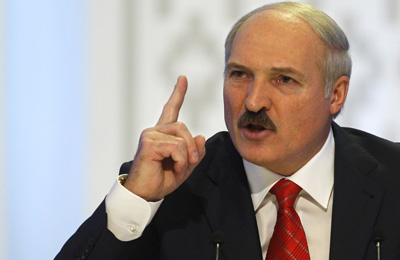New York, January 3, 2011–The Committee to Protect Journalists called on the European Union today to condition its diplomatic relations with Belarus on the release of all recently arrested journalists and the halt of official Minsk’s crackdown on the independent press.
Journalists Irina Khalip and Natalya Radina have been officially indicted with organizing and participating in mass disorder–two separate counts under the Belarusian criminal code, which respectively carry prison terms of up to 15 and eight years if convicted. According to Belarusian law, once charged, officials can prolong the journalists’ arrest in two-month increments until the case against them is ready to go to trial. Khalip and Radina have been held in a security police (KGB) isolation unit for 15 days; their lawyers were forced to sign gag orders, the local press reported.
Today the Minsk city government launched a campaign called “For the children’s safety,” ostensibly meant to “save children in a socially dangerous position,” European Radio for Belarus reported. Officials are seeking custody of children in “problem families,” and follows previous attempts by Belarusian authorities to seize the 3-year-old son of Khalip and former opposition presidential candidate Andrei Sannikov (also imprisoned) from his maternal grandparents.
“We call on the European Union to make all further diplomatic and trade relations with Belarus dependent on the immediate and unconditional release of Irina Khalip, Natalya Radina, and at least 20 other journalists currently behind bars,” CPJ Europe and Central Asia Program Coordinator Nina Ognianova said. “The ugly attempt to place Khalip’s young son in a foster home against his grandparents’ will is an abomination. Such outdated Soviet intimidation tactics have no place in 21st century Belarus.”
As CPJ previously reported, Khalip, a local correspondent for the Moscow-based independent newspaper Novaya Gazeta, was beaten and forcibly taken by riot police while on the air with the independent Russian radio station Ekho Moskvy on December 20. The same day, Radina, editor of Charter 97, was also beaten and detained when special forces stormed the website’s offices and took her and the three volunteers staffing the newsroom. Radina, who sustained head and ear injuries, has not received medical attention in custody, her mother told the local press. Khalip’s health condition remains unknown. In an interview for the local opposition daily Narodnaya Volya, Khalip’s father, Vladimir Khalip, said her daily letters to her son and parents, which she told her lawyer she had been writing, had not reached them.
Over the New Year’s holidays, the KGB continued to raid the homes of independent and pro-opposition journalists and seize reporting equipment. At around 9 p.m. on Thursday, agents stormed the apartment of Yekaterina Tkachenko, a reported with the satellite television station Belsat, and confiscated her laptop computer, Charter 97 reported, citing Belsat’s press service. At around 8 a.m. on Friday, New Year’s Eve, KGB officers raided the home of Yulia Doroshkevich, a photographer with the independent weekly Nasha Niva, the newspaper said.
“We call for an immediate end to all politicized raids on independent newsrooms and journalists’ homes, and the return of all confiscated equipment,” Ognianova said.
The KGB produced a search warrant for Doroshkevich that sought photographs and video footage considered evidence in the umbrella criminal case into “mass disorder,” opened after demonstrators gathered in downtown Minsk on December 19 to protest the results of a flawed presidential vote. The KGB took two laptop computers, multiple flash drives and computer disks, a photo camera, and an audio recorder from the apartment, Charter 97 reported.
Minsk responded defiantly to mounting criticism by both the United States and the European Union of its crackdown on journalists and the opposition in the aftermath of the presidential election. When the local mandate of the Organization for Security and Co-operation in Europe (OSCE) was due for renewal on Friday, Belarusian Foreign Ministry spokesman Andrei Savinykh announced that it will not be prolonged–meaning that the OSCE representative’s office in Minsk will be closed. Earlier, an OSCE election-monitoring mission sharply criticized the recent vote, particularly the lack of transparency in the ballot count. On Saturday, Lithuania took over the yearlong chairmanship of the group from Kazakhstan. In his first speech as chairperson-in-office of the OSCE, Audronius Ažubalis, Lithuania’s foreign minster, reiterated his intended focus on promoting media freedom in the OSCE participating states.
